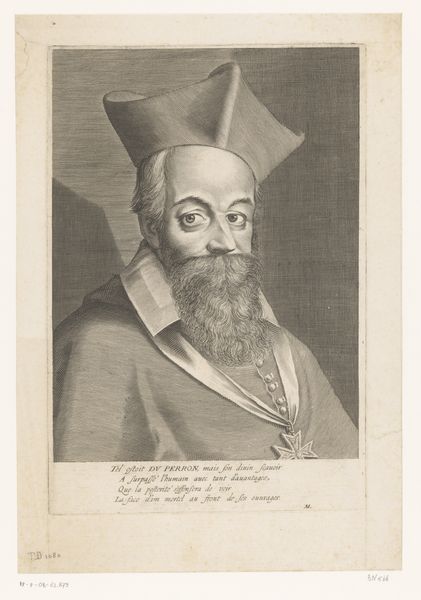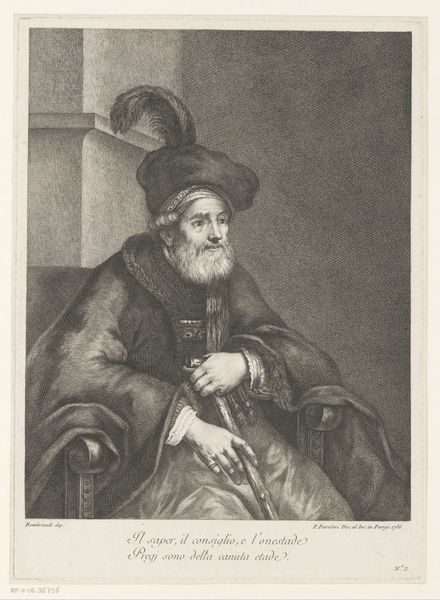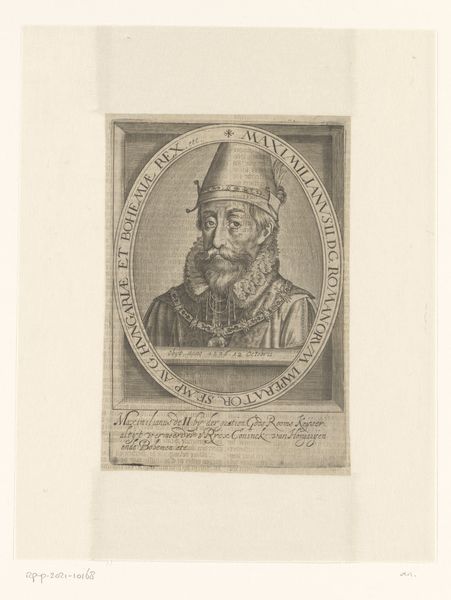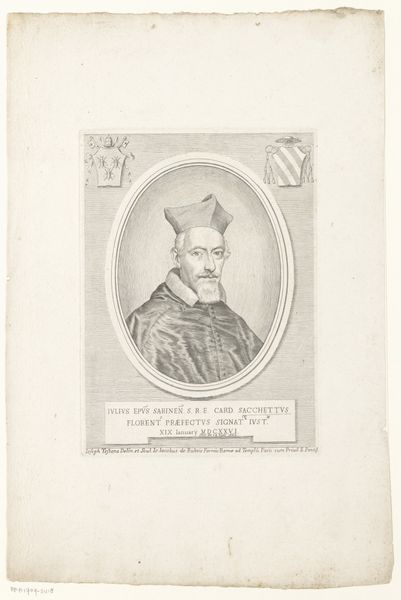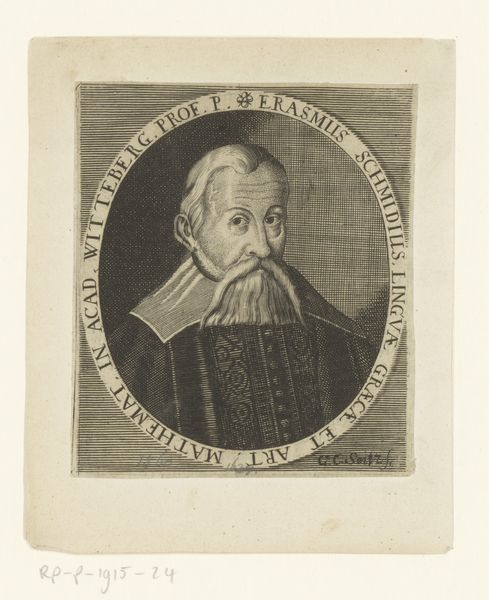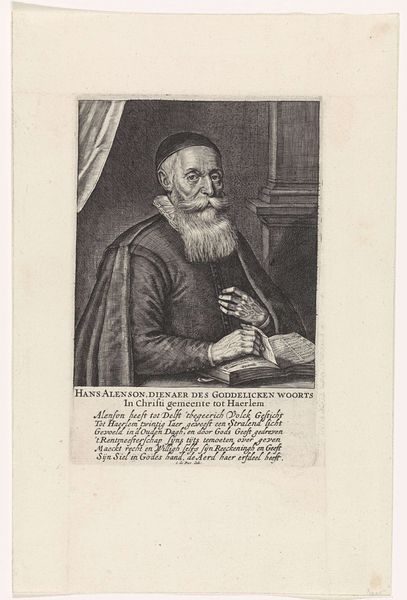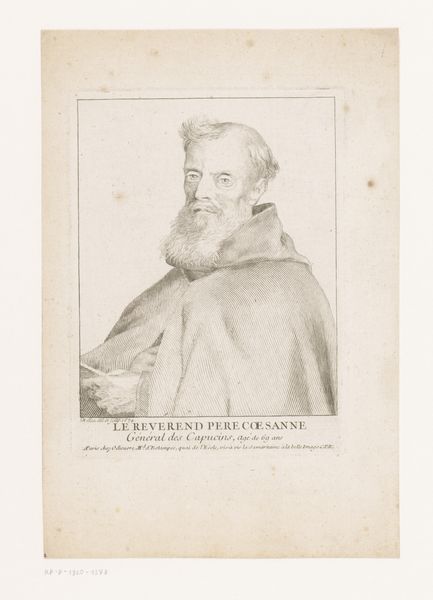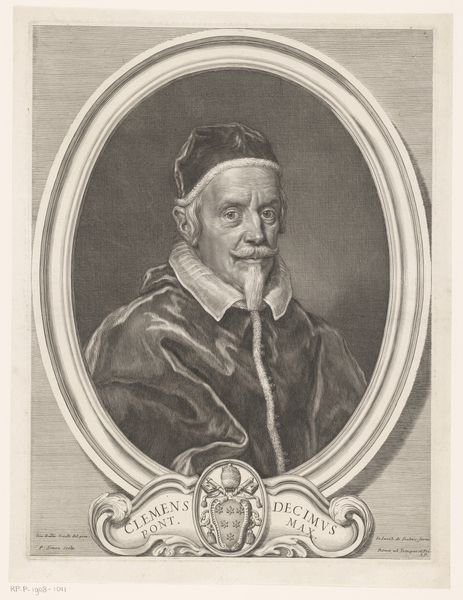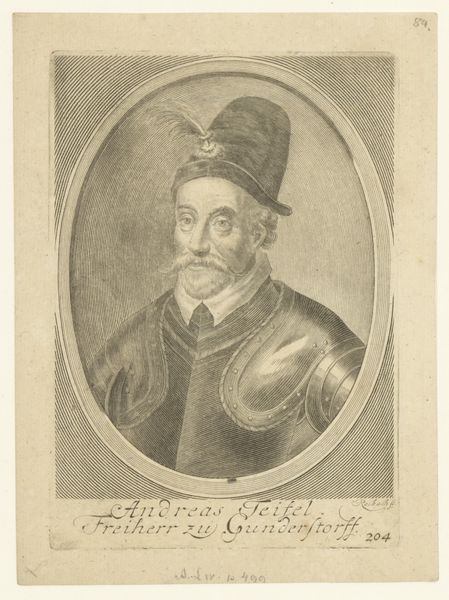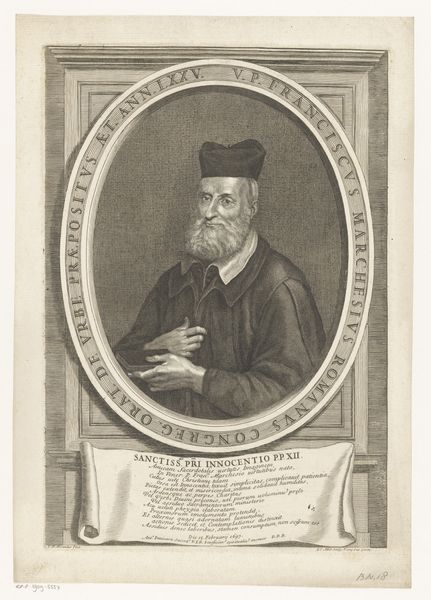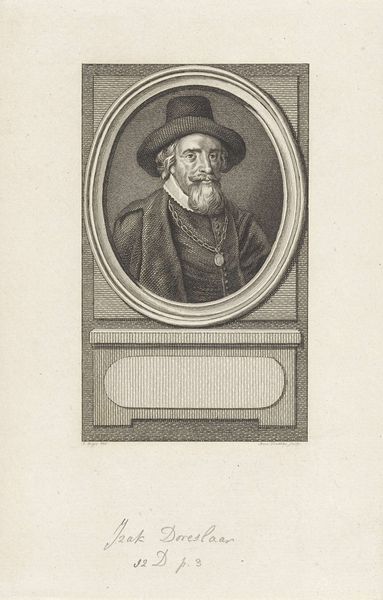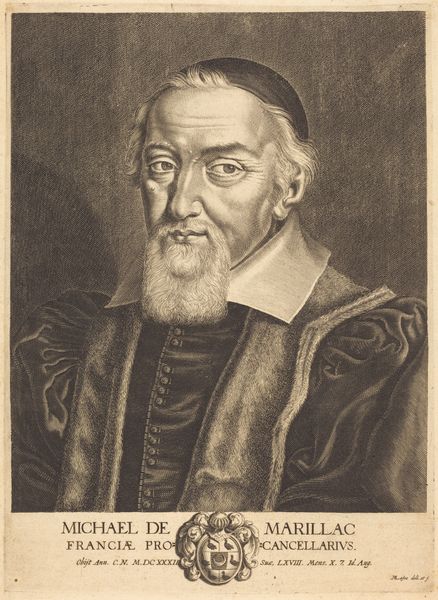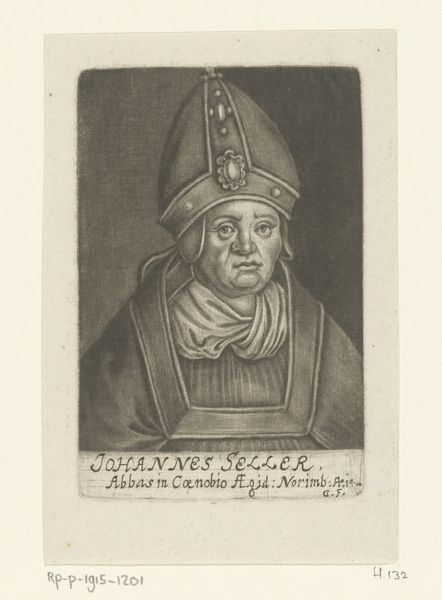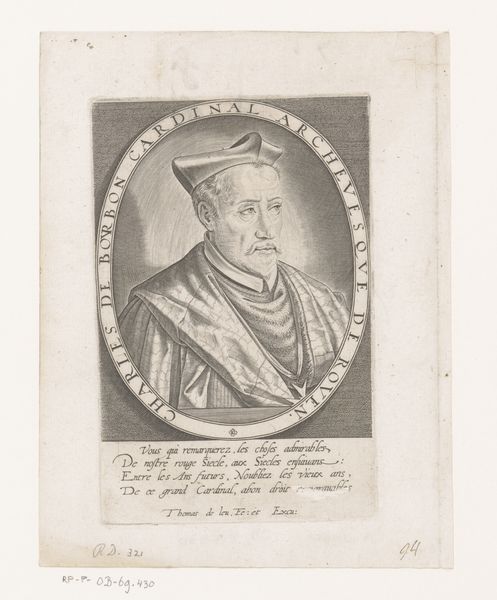
engraving
#
portrait
#
baroque
#
figuration
#
line
#
academic-art
#
engraving
Dimensions: height 323 mm, width 211 mm
Copyright: Rijks Museum: Open Domain
Editor: So, this is a portrait of François Harlay de Champvallon, made sometime between 1600 and 1667, by Michel Lasne. It's an engraving, which I find amazing given the level of detail. It strikes me as quite austere, almost imposing, but also with a subtle air of... wisdom, maybe? What do you see in it? Curator: You know, when I look at this, I don't just see an archbishop; I see an individual navigating the turbulent waters of 17th-century France. Lasne has captured a certain gravitas, hasn’t he? The eyes, they almost seem to hold a question. And the beard... it’s like a cascade of distilled thought. Do you think Lasne intended to convey the weight of responsibility in his depiction? Editor: Absolutely. And the text underneath the portrait – I hadn't focused on it initially, but it adds another layer, hinting at his theological work and judgements. It’s like a mini-resume etched in ink! Does the style – is it Baroque, right? – contribute to that sense of power and authority? Curator: Good question. Yes, the Baroque elements are certainly present – that attention to detail, the dramatic lighting, even in an engraving, hint at that period. But there's a restraint here, too. It’s not the full-blown theatricality you might expect. Perhaps Lasne was aiming for a more nuanced portrayal, revealing the inner workings of a complex mind. You notice how the lines create depth despite it being an engraving. It feels so…tactile! Editor: It does. I initially saw austerity, but now I see layers. A person wrestling with ideas, with power, with faith. Thanks for pointing that out, it’s changed my perception completely. Curator: And that, my dear editor, is the magic of art – constantly revealing new depths! A shared experience creates shared insights, doesn’t it?
Comments
No comments
Be the first to comment and join the conversation on the ultimate creative platform.
